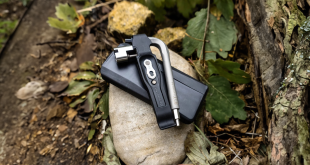There are many things which are unambiguous in EU and UK rules on electric bikes.
Riders must be over 14 years old to ride an electric bike, but they are not required to pay Vehicle Excise Duty, register the bike, have insurance or wear a helmet.
An electric bike may be ridden on the same cycle facilities as a normal bike, such as off-road cycle paths, Advanced Stop Lines at traffic lights, designated cycle crossings and so on. And of course, they can use public roads, unless bikes are prohibited (such as is the case on motorways).
Now comes the confusion: there are a number of key features which define an electric bicycle in UK and EU laws. Although there’s currently a little UK/EU fuzziness in the regulations, the de facto rules are that the machine must not weigh more than 40kg, the motor power must not exceed 250 watts, and the motor must cut out at 15.5mph. In addition, it must have working pedals, and meet the relevant standards for a normal bicycle.
According to the BA, there is no court tested difference between UK and European regulations in terms of power control. In the UK, it is possibly and theoretically legal for an e-bike throttle to be operated without the pedals turning (so that you may ride on power alone), whereas in the rest of Europe, the pedals must be turning for the power to be applied. It’s likely that the UK will soon come into line with European standards for new bikes, but that anything currently legal will remain legal. It’s this, currently legal‚ that is very much open to interpretation and the clear advice from the Bicycle Association is that throttle-controlled e-bikes should be neither supplied by UK suppliers, nor sold by UK retailers. Caveat emptor: buyer beware.
The BA notes that the UK Department for Transport has, over time, hardened its line on Electrically Assisted Pedal Cycles (EAPCs). In May 2010, a new information sheet from the DfT, said those ‘twist and go’ e-bikes with ‘wink, wink; nudge, nudge’ off road‚ throttle assistance do not comply with the rules.
The DfT guidance said: "We are aware of some electric cycles that have a switch offering a temporary increase in top speed, often advertised as an ‘off road’ facility. When the switch is pressed the vehicle can be propelled by the motor at a speed greater than 15 mph. Vehicles with this feature fitted, in our opinion, do not comply with the GB EAPC Regulations. Vehicles and riders must comply with the appropriate motor vehicle requirements i.e. registration, driver/rider licensing, insurance, use of an approved helmet etc."
The UK does not have a separate class for electric ‘superbikes’ but Germany and Switzerland do. In Germany, there’s a ‘Leichtmofa’ class which includes electric bikes capable of assistance up to 45km/h (28mph) and with up to 500 watt motors. A licence and insurance is required to ride such a bike but not a helmet. The bikes are not allowed on bike paths.
As there is no such class in the UK, nor any chance of the creation of such a class, the BA recommends that e-bikes outside of the standard pedelec parameters should be considered off-limits to UK consumers.
Phillip Darnton, the Bicycle Association’s executive director, is very much in favour of electric bikes. Last year he organised a seminar on electric bikes for members and non-members, and has proposed a media event later this year, specifically to promote the electric bikes. However, he believes throttle-controlled e-bikes muddy the water.
He said: "The subject of e-bikes with twist and go throttles is a topic which is quite complex; has a number of grey areas in its detail; and at this stage is not possible to get a definitive answer from the DfT.
"This lack of regulatory clarity has allowed importers to try and work around the legislation and regulation, using paragraphs of text to favour their own particular product. There is a mixture of ignorance, special pleading and sometimes self interested misinterpretation of what the current guidance actually says.
"The core issue for the cycle industry is whether or not they wish to fudge the boundary between the definition of a bicycle and that of a scooter or moped. The danger of doing so is that government and politicians who are not supportive of pedal cycling (and there are many) will start to campaign for bicycles being licensed, taxed, with insurance and for the compulsory wearing of helmets. Their argument will rest on the basis that there is no difference between a moped and a bicycle with a throttle, and indeed they would be right.
"The bicycle industry, therefore, is working to ensure that the boundary between pedal bicycles and scooters/mopeds is crystal clear. The way to do this is to ensure that bicycles are power assisted only; that is the pedals must be being turned for the power to be engaged. In this way it is quite clear that the vehicle is truly a bicycle with the assistance of some power."
Referring to a BikeBiz forum comment by the MD of Wisper electric bikes, Darnton said:
"The confusion which David Miall has introduced to this discussion relates to a quite specific point proposed by the Netherlands and Germany – namely the acceptance of a start up assistance mode. The proposal is that in order to help start a power assisted bicycle (which is a heavy vehicle) and also to help if there is fault with the bicycle to enable it to be pushed, a start up assistance mode with a maximum speed of 6 km per hour may be used. The proposal also states that the speed of 6 km per hour might be lower as specified by the manufacturer.
"From this it is perfectly clear that the throttle is designed to be only an override button which will cut out at walking speed. It is not an acceptance that twist and go throttles may be used as part of the power system of the bicycle itself.
"The danger of David’s comments is set out in his own words in the paragraph in which he says "some feel the throttle makes the electric cycle more akin to a moped I have to accept that". He has summarised the problem for the industry perfectly and this statement alone would be, in my view, evidence enough for MPs and legislators, hostile to the existing indiscipline of cyclists on the road to justify their demand for licensing.
"Lobbying the DfT to accept twist and go bikes is to take a very serious step closer to having regulations for bicycles that are the same as for mopeds and scooters.
"The truth of the matter is that only the UK courts could decide what the law currently is. They are unlikely to do this given that the DfT is reviewing the regulation at present. I remain confident that the UK will follow the EU regulations which are certainly designed to avoid any risk of confusion between bicycles and mopeds.
"Furthermore, the EU will be keen to ensure that the quality of power assisted cycles is high. There have been many examples of cheap EPACs leading to customer dissatisfaction with the bike because of inability to obtain spares, get proper maintenance or obtain replacement batteries. Cheap bikes, which are principally twist and go, serve only to create customer dissatisfaction with the whole idea of EPACs and will stop the market growth that surely unites the whole industry.
"In conclusion high-quality, power-assisted bikes – and not twist and go – are the best future for everyone in the cycle market."
 BikeBiz Bicycle and cycling retail news
BikeBiz Bicycle and cycling retail news



